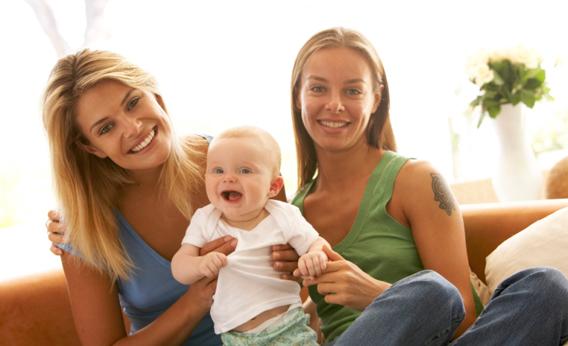I love the Frankenstein allusions in Parental Obligations and Bioethics: The Duties of a Creator, by Bernard Prusak. I also recently read that novel, precisely to think about parental ethics. The basic idea of Prusak's book is that creators have special obligations to their creatures, like Dr. Frankenstein did to his monster. Frankenstein was wrong to abandon the poor creature at birth (he runs out of the room when he wakes up, unlike in the touching picture above). It would be wrong if a couple deliberately produced children for others to adopt, we think (don't we?). But why? What are the grounds for parental obligation?
Prusak proposes a "causal theory" of parental obligation, in contrast with a voluntary commitment theory, on which you are obligated to raise a child only by the fact that you voluntarily took on that project.
men and women acquire parental obligations to a child by voluntarily acting in such a way that the coming-into-being of this child was a reasonably foreseeable consequence in the normal course of events (p. 24)The causal condition is supposed to be a sufficient condition for having parental obligations, not a necessary condition. Frankenstein meets the condition, so has parental obligations to the monster. And procreators meet the condition when they bear children. At least, usually. Suppose a man winds up fathering a child because of a broken condom or a flawed vasectomy. Was the sheer act of having sex an act with the coming-into-being of a child as a reasonably foreseeable consequence? I'm not sure, but I think that's the idea.
Anyhow, here's what I have misgivings about. The causal theory makes A have parental obligations to B in a highly diverse range of cases. The causal theory by its very nature doesn't separate the case of making your own child (in the usual way) from other cases of creation. Frankenstein is the parent of the monster, on this account, no less than I am the parent of my children. The problem, I think, is that we seem to have a special class of creator obligations to those that we create in the way parents create their children. That way of creating makes a child practically like a second self (as Aristotle puts it); and the parent, to the child, is a sort of second self too. The causal theory says nothing distinctive about the parent-child case, but should.
The adoption puzzle is a great puzzle. Why shouldn't a couple deliberately produce babies for others to raise? On Prusak's causal account, the producers have obligations to parent the children they produce. But how to make this more compelling? He says parents, by creating a child, saddle the child with the mixed blessing of existence. The child is owed an explanation and defense that can only come from the parent, as the responsible party.
If life is not an unequivocal good, then procreation is not a morally innocent undertaking, and it makes sense to think that a procreator has much to answer for in bringing a child unbidden into being. (p. 42)Frankenstein ought to take care of the monster, not entrust him to someone else (p. 36):
In other words, it was Frankenstein's fault that the monster existed, so only Frankenstein could help him become reconciled to his existence. And parents general ought to be available to help children become reconciled to existence.
I'll buy this as the reason why Frankenstein must take care of the monster (which he doesn't--he runs out the room the moment the poor monster wakes up!). But our lives aren't fraught with "burden's and travails" in the same way. I've been around for 16 years to help my kids cope with the fact that they exist, and haven't been called upon to do so. I hypothesize that these kinds of discussions rarely take place, and so it can't be that parents have a prima facie obligation to raise their own children in order to have them.
So, what is the problem with the deliberately relinquishing couple? I think it has to do with what makes ordinary parenthood distinct from Frankenstein-style creation. Biological parents can legally transfer their rights and obligations to adoptive parents, but can't, at will, completely sever the tie between parent and child that makes one seem like a second self to the other. So the parents are likely to be troubled-- they will either suffer or delude themselves. And the child is likely to be troubled, in a long-term irresolvable way, by the transfer. And it will be especially hard for such a child, compared to a regular adopted child, because he'll know this was intended by the parent, not accidental.
That may not be 100% satisfying as a complete explanation why having whole children for others is bad, but it seems part of the complete explanation. And better--more generally applicable--than the idea that biological parents need to be around to help their children understand why they were born.
There are tons of juicy issues in this book, and it has a great bibliography--I am currently working my way through some of the titles, starting with a book about child abandonment by historian John Boswell. My most serious complaint--why the ludicrous $130 price-tag? If it weren't for that, I'd be saying "go read it!"


